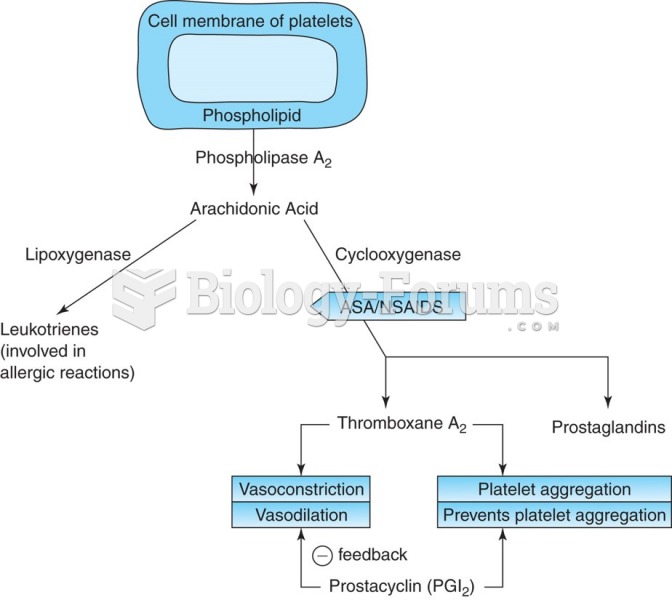|
|
|
Asthma is the most common chronic childhood disease in the world. Most children who develop asthma have symptoms before they are 5 years old.
More than 34,000 trademarked medication names and more than 10,000 generic medication names are in use in the United States.
Blood in the urine can be a sign of a kidney stone, glomerulonephritis, or other kidney problems.
More than 20 million Americans cite use of marijuana within the past 30 days, according to the National Survey on Drug Use and Health (NSDUH). More than 8 million admit to using it almost every day.
Automated pill dispensing systems have alarms to alert patients when the correct dosing time has arrived. Most systems work with many varieties of medications, so patients who are taking a variety of drugs can still be in control of their dose regimen.
 Sublingual medication administration. Photograph of a male patient placing a nitroglycerine tablet u
Sublingual medication administration. Photograph of a male patient placing a nitroglycerine tablet u
 Effect of pH on drug absorption: (a) a weak acid such as aspirin (ASA) is in a nonionized form in an
Effect of pH on drug absorption: (a) a weak acid such as aspirin (ASA) is in a nonionized form in an





